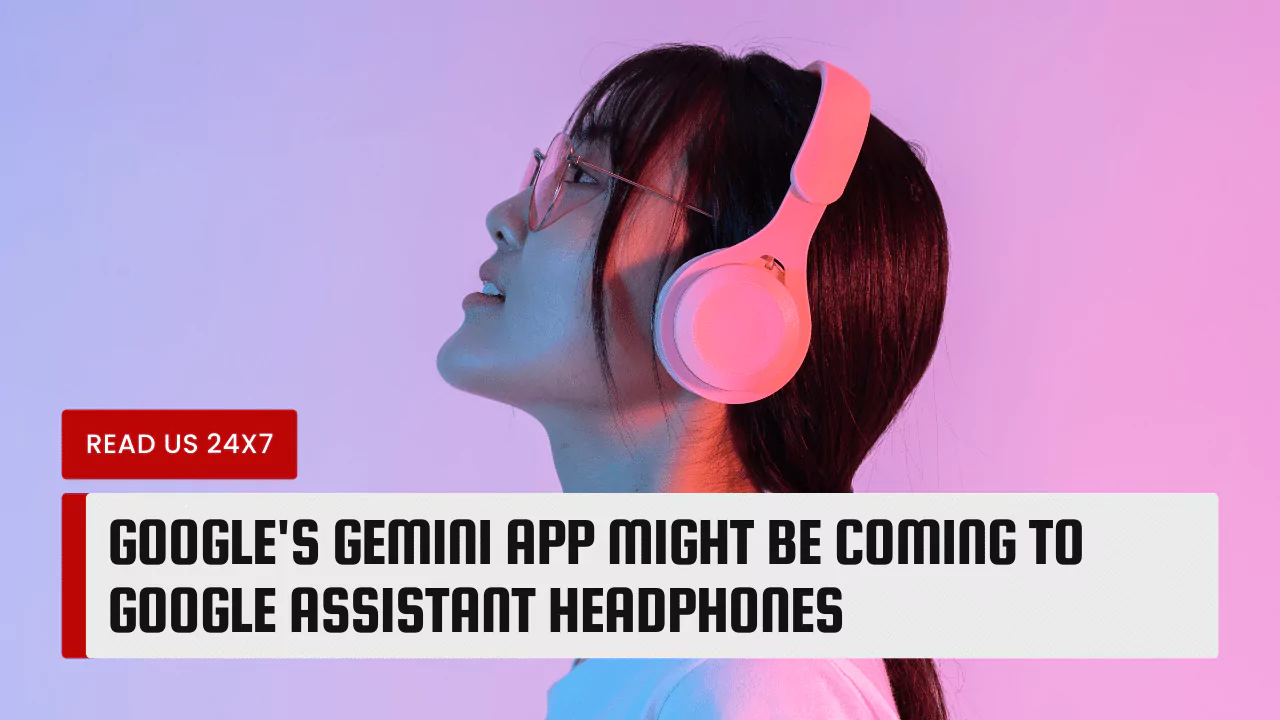Google’s Gemini app, known for its integration with smartphones, may soon extend its reach to Google Assistant headphones. While initially focused on smartphones, Google’s expansion plans hint at broader accessibility, including the audio-only medium of headphones.
Last week, Google unveiled its Gemini app, which seamlessly integrates with Android and iOS smartphones. This innovative app brings generative AI-powered responses to users, enhancing the Google Assistant experience on mobile devices. However, Google’s recent announcements suggest that Gemini’s capabilities may soon extend beyond smartphones to include Google Assistant headphones.
The latest beta version of the Google app (15.6) teases the possibility of Gemini’s compatibility with headphones. A string within the code indicates that the Gemini mobile app is working on expanding availability to make it accessible on headphones. This move signifies Google’s commitment to diversifying the platforms through which users can access its AI-powered features.
<string name=”assistant_onboarding_bisto_error_message”>Gemini mobile app is working on expanding availability to make it accessible on your headphones</string>Gemini’s potential integration with Google Assistant headphones opens up new possibilities for users seeking a seamless and hands-free Assistant experience. While the specifics of how Gemini will function on headphones remain to be seen, it’s expected to bring the same level of convenience and intelligence that users have come to expect from Google Assistant.
One of the notable advantages of bringing Gemini to headphones is the ability to leverage generative AI-powered responses in an audio-only format. Users can interact with Google Assistant without the need to glance at a screen, enhancing accessibility and convenience in various scenarios.
Moreover, integrating Gemini with headphones aligns with Google’s broader strategy of expanding Assistant’s reach across different devices and form factors. By making Gemini available on headphones, Google aims to offer users a consistent and intuitive Assistant experience across multiple platforms.
However, challenges may arise in optimizing Gemini for headphones, particularly concerning the length of responses. Unlike smartphones or smart displays, where users can read longer replies at a glance, headphone users may prefer shorter, more concise responses. Google will likely need to fine-tune Gemini’s algorithms to ensure that responses are tailored to the audio-only medium.
Additionally, Google may explore features such as playback speed customization to enhance the user experience on headphones. Giving users the ability to adjust playback speed can further personalize their interaction with Google Assistant, catering to individual preferences and usage patterns.
Despite potential challenges, Google’s move to bring Gemini to headphones reflects its ongoing commitment to innovation and user-centric design. By expanding the reach of its AI-powered features, Google aims to empower users with seamless access to information and assistance across a diverse range of devices and environments.
In conclusion, Google’s Gemini app’s potential integration with Google Assistant headphones represents a significant development in the evolution of voice-based assistants. As technology continues to advance, we can expect to see further innovations that enhance the accessibility and functionality of virtual assistants like Google Assistant.


